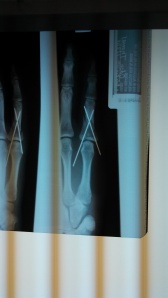I always note how I don’t write enough and it’s never been more true as it is now. Compared to past instances, however, I don’t feel as bad about it.
Over the past year I have been studying topics in computer science. It started with an introductory Java course, followed by data structures. Where it takes me is yet to be seen, but I enjoy the problem-solving and application of logic. I will be taking discrete mathematics in the fall, and to prepare for the course, I decided to take calculus this summer.
I’ve never taken calculus and I had a lot of fear leading up to the course- math is not my forte and it’s been nearly a decade since I’ve taken ANY sort of math course. And this was a grueling schedule too- all of Calculus 1 in eight weeks.
It has definitely been a challenge and my body has suffered a bit as a result. Significantly less exercise, less sleep, less grocery shopping time which translated into more fast food and less of a food budget, and less “me” time. For the sake of my body, I’m not sure if I’d repeat it again. But it’s been worth it- so far I’m pulling a decent grade in the course and feel more prepared for the fall.
We are preparing for our final two tests. At the end of this week’s last lecture, the professor handed out a pre-test worksheet that assessed our progress in the chapter. After receiving the paper I packed up my things to head home. Before I left, I hovered over the desk of another student to watch him work a problem. He is likely one of the best students in the class and I wanted to see how challenging the worksheet was for him as a gauge for the time I’d need to invest on studying this weekend.
He was stuck on the question. He explained to me his problem-solving approach, attempting to use two different methods that we’ve tried in class. One ended in a lengthy amount of work, and the other wasn’t very applicable. He wasn’t sure what to do and felt like he reached a dead end. He was ready to go ask the professor for help.
Shooting from the hip, I asked, “Why can’t you just try this?” My answer and approach was elementary, basic, and lazy. But it made sense. And it solved the problem. And it reminded me of a programming principle that is good to apply to our day-to-day living:
Step back, consider alternative routes, and keep things simple.
All too often when learning math in high school, teachers would tell me that I was “making things tough on myself”. They meant that I made problems too complex, long, and confusing. This time around, my new approach is paying off as I learn how to apply it to higher-level math and programming. And as I continue to move on in work, life, and relationships, I try to remember the same principle: don’t over-complicate issues, step away, and consider the path of least resistance. Play around with the issue; don’t reinvent the wheel.
Here’s to remembering that as this course wraps up.

